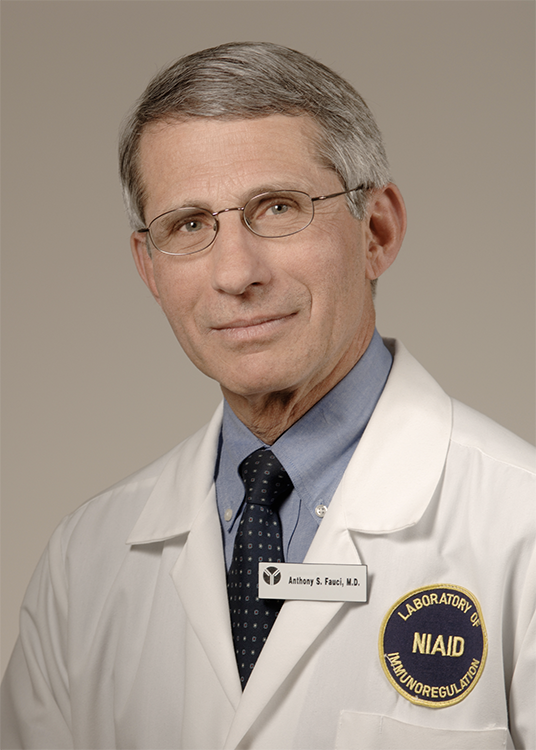Co-Missioners,
We’re pleased to send you a meaty, down-to-earth reflection on one of this summer’s hot issues in the U.S. Our thanks to Steven Kuhl for thinking it through and writing it out. A reminder that thoroughly Lutheran Steve is the rector of St. Mark’s Church, an Episcopal congregation in South Milwaukee.
Peace and Joy,
The Crossings Community
Mask or No Mask? Crossing Elisha and Dr. Fauci
or
Don’t Sell the Prophet’s Counsel Short
by Steven Kuhl
As I think of the pastoral task before me now in this time of pandemic, Luther’s devotional writings come to mind: those writings that addressed the “devout” in the art of living faithfully. In my mind, they seem to do what Crossings wants to do, what any pastor needs to do. We need to address the real-life challenges and anxieties our people face in a way that is simple, contextually direct, and biblically rooted.
“Simple,” because our people are not professional theologians any more than they are professional scientists—and we professional theologians and pastors know from our own wrestling with Scripture and daily life that the Word of God can be as mysterious to our people as modern science.
“Contextually direct,” because the Word of God is not a general theory about life—say, the way the philosophers think of it—but God’s direct address in the unique challenges of the moment. Not that we may not find precedents in the past that help illuminate the present, but God’s Word is always a Word that addresses the present, both as judgment and promise. That’s because God is not a principle to be followed but a person who addresses us as persons, the most demonstrative proof of which is his coming to us in the person of Jesus Christ.
“Biblically rooted,” because the knowledge of God is not something that is idiosyncratic to ourselves, but the revelation of the God of history who has acted in the past, is acting in the present, and will continue to act in the future. We use Scripture because it is the most ecumenically accepted source we have. We use Scripture to let our people know that we do not preach ourselves (our words, our thoughts, our ideas) but God’s Word, as best we can discern and in a manner that is open to the audit of the people of God.
What follows is a message I presented to my congregation to address the increasing confusion that we in Wisconsin, at least, are living in concerning how to live faithfully in this time of pandemic. The initial question may sound so everyday, so trivial, that we might wonder if the Word of God has nothing to say to it. In this time of pandemic, should we wear a mask or not? Is the virus really that dangerous or is this just Chicken Little hysterically screaming that the sky is falling, a ploy to rob us of our freedom to do what and how we want with the life that is ours?
In my parish I have both kinds of people: on the one hand, those who are terrified by the threat of the virus and upset with those who do not wear masks and gather nonchalantly in large groups; and, on the other, those who are enraged at the thought of a political, scientific establishment trying to stifle their freedom to carry on with life as usual, life as they want it. You may have that same divide in your community. In addition, unfortunately, the only category that people seem to have for processing this conflict is politics or, more accurately, partisan politics, which seems to be nothing but a thinly veiled facade for asserting “my self-interest” at the expense of the common good.
In what follows, I don’t pretend to have a message that everyone will agree on. Indeed, it may make some mad—but I’m not ready yet to prejudge that. I want to give the Word of God and its accompanying Spirit a chance to work when, where, and how it will. But I’m not naïve. Given the divide, I know that the Word of God itself cannot help but take sides. The law always does. Someone is, more or less, right and someone is wrong. Even so, given the kind of “side” the gospel of God in Christ takes—namely, to side with the forgiveness of sins—I’m hoping that that Word of God will heal the very divide the Law of God will inevitably create. That’s the category, anyway, that I as a pastor and theologian have to work with. And, to use Luther’s term, it means being a theologian of the cross, calling a thing what it is. “Let God be God.”
At this moment, it seemed to me that the story of the healing of Naaman through the divine counsel of Elisha helps to illuminate our present context. I will let you be the judge.
+ + +
Dear Christian Friends,
The big news is the same old news. The coronavirus is on the rise—worse in some places than others—but nevertheless rising. If we dare to look at this rise carefully—especially where the rise is more and where it is less—we might gain insight into how to respond to it. As it turns out, in my view, the advice we received early on from health experts, while evolving, seems to be sound: Wear a mask, wash your hands, keep your social distance, avoid large gatherings. And then, supplement that with timely testing and contact tracing.
And yet there is profound disagreement, if not outright conflict, over how to view the rise and especially the advice of health experts. Still worse, we seem to have only one category for adjudicating at this moment: politics—or, more accurately, partisan politics, a politics corrupted by the pursuit narrow self-interest (the freedom to do immediately what I want when I want) over the common good (the freedom, if you will, to discipline oneself over the long haul for the sake of what’s best for us all). But we as the Church, I want to suggest, have another category to adjudicate such matters. We call it the Word of God—and it has a lot to say to us. May God grant us ears to listen.
 In particular, I’m reminded of the story of the Naaman, the commander of the army of the king of Aram (an enemy of Israel) and the prophet Elisha. You can read it in 2 Kings 5:1-14. To make a long story short: Naaman was suffering from leprosy. And, as it happened, in a battle with Israel he captured an Israelite girl and made her a slave for his wife. The girl told Naaman’s wife that Israel had a great prophet, Elisha, who had the answer for Naaman’s cure, and the word about this got out to Naaman and his king.
In particular, I’m reminded of the story of the Naaman, the commander of the army of the king of Aram (an enemy of Israel) and the prophet Elisha. You can read it in 2 Kings 5:1-14. To make a long story short: Naaman was suffering from leprosy. And, as it happened, in a battle with Israel he captured an Israelite girl and made her a slave for his wife. The girl told Naaman’s wife that Israel had a great prophet, Elisha, who had the answer for Naaman’s cure, and the word about this got out to Naaman and his king.
Therefore, at the behest of his king, Naaman was ordered to see the prophet, for he wanted his great commander well. But, since they were enemies, the king wrote a letter to the king of Israel, asking for permission and offering money for the cure of Naaman. When out of the blue the king of Israel received the letter, he didn’t know what to think and tore his clothes in horror. He knew nothing about a cure and thought he was being set up for certain failure. For if he told the king of Aram that he knew of no cure, it could be interpreted as a hostile act against Aram, the king, and this great general.
When the prophet Elisha heard of his king’s anguish, he sent word to his king not to fear. He had the cure and, so, Naaman should be invited to come.
When Naaman arrived at Elisha’s house, he did so in a display of power—coming with many troops and horses and chariots. Awesome power, he thought, is the way awesome things get done. Therefore, he was enraged at what Elisha told him to do. Elisha said, “Go to the Jordan River and wash seven times and you will be healed.” “What?” said Naaman. “Aren’t you going to call upon your God and wave your hands in a display of power? What is this you tell me to do? We have better rivers back in Aram!” In essence, Naaman thought the prophet was nuts.
But then comes a crucial moment. Naaman’s servant urges him to do what the prophet said. And note his reasoning: “If the prophet would have given you something difficult to do, you would have immediately done it. So why not do this simple thing and see what happens?” His argument is almost like Pascal’s wager: What do you have to lose? If it doesn’t work, you’re left with your leprosy. Nothing gained, but nothing lost either, except the expense of the trip from Aram to Israel. But if it works, look at the gain! You are cleansed of leprosy.
Naaman listened, did what the prophet told him, took the wager, and, behold, it worked—he was cleansed of his leprosy. As a whole, this story tells us something very important about life in this world. The authenticity of a prophet, God’s help, is known after the fact, only after his/her message has been heeded and comes true. That was true for Naaman with Elisha, and it was true of every one of the biblical prophets. As it turns out, the biggest question in life, then, is not, “What do you know?” but, “Whom can you trust?”
Of course, we always need to be careful about how we interpret biblical texts. The message is certainly not that the Jordan River is magical water and provides a universal cure for leprosy. Nor is it that God will solve everything with a miracle. God gives no such promise, though it is true that miracles—unexplainable things—do happen in the course of God’s providence, God’s mysterious provisioning of his creation.
Rather, the message, so it seems to me, at least as it might cross over from Naaman’s situation to ours, is this: We do well to follow the instructions of God’s prophets when he sends them to us or us to them. And who are they? They are those “in the know” whom God has raised up among us to give us help and guidance. They don’t operate without a calling, meaning that they are not self-appointed, and they ultimately see themselves as accountable to God or the truth. We are to listen to them even if, at times, it seems too simple to be effective or true. For Naaman, the one “in the know” was Elisha and his advice was oh-so-simple: “Go wash in the Jordan seven times and you will be clean.”
 In this time of pandemic, I would suggest that the ones “in the know” would be the medical experts. Note their sense of calling and their commitment to their discipline. But above all, note the respectful way they insist on having independence from political and economic power with regard to their calling. That is a very prophet-like quality. For the moment, their oh-so-simple message to us to “wear a mask, wash your hands, social distance and avoid large gatherings” seems anything but “expert.” But they insist it is rooted in deep, if incomplete knowledge. Do this, they tell us—at least until they can get us something better; say, a vaccine, which is coming—and we can mitigate the virus for now and actually save lives!
In this time of pandemic, I would suggest that the ones “in the know” would be the medical experts. Note their sense of calling and their commitment to their discipline. But above all, note the respectful way they insist on having independence from political and economic power with regard to their calling. That is a very prophet-like quality. For the moment, their oh-so-simple message to us to “wear a mask, wash your hands, social distance and avoid large gatherings” seems anything but “expert.” But they insist it is rooted in deep, if incomplete knowledge. Do this, they tell us—at least until they can get us something better; say, a vaccine, which is coming—and we can mitigate the virus for now and actually save lives!
With regard to applying this story to present company, I am not at all like the prophet Elisha in the story. Dr. Fauci is more like Elisha. He is the one “in the know” and who has a strong sense of calling about bearing witness to the truth of what he knows, even when pressured by the powers that be to fug it. I am, by contrast, more like the servant of Naaman in the story and you dear readers (especially taken as a whole) are more like Naaman. Therefore, my role as your servant is to say: “Why not follow the instructions of Dr. Fauci and the medical experts? If he/they had asked you to do something difficult, wouldn’t you do it? If he had a powerful miracle drug, wouldn’t you take it?” Don’t let the fact that the instructions are so simple, so low-tech, so devoid of scientific pizzazz, fool you into thinking they are a hoax or a mischievous ploy to infringe upon your freedom. Indeed, think about it in terms of Pascal’s wager: what is really lost by following his instructions? The wager doesn’t seem all that risky.
True, wearing a mask might be humbling, it might be a nuisance, it might be limiting in some way. But why not think of this “cost” as symbolizing another fact about life that we often forget. The fact that we are not the masters of the universe—God is! The fact that freedom, in the biblical sense of the term, means the freedom to “let God be God” and to follow the instructions he gives us through his prophets. This way of thinking is no small matter. The universal human error—we call it “sin”—is the belief that freedom means doing whatever I want whenever I want wherever I want. As Adam and Eve found out (Genesis 3:1-7), this is not freedom at all, but bondage to the voice of the Serpent who desires not only to put us at odds with God, but with God’s helpers, the prophets he provides us. It is because of that very bondage that God sent Christ to set us free. (cf. Gal. 5:1).
Ultimately, we know that even when we finally get a “cure” for the Coronavirus (whether because of the development of a vaccine or the emergence of herd immunity through a tragic onslaught of sickness and death), we will not be cured from death. Just look at the story of Naaman. Even though Naaman was cured of his leprosy by following the word of the prophet, he, nevertheless, still died—as have all recipients of God’s help through prophets, as shall we.
Rather, the cure for death comes through Jesus Christ, as does the forgiveness of sins, as does the freedom to deny ourselves, take up the cross, and follow him. (Matthew 16:24-26). We believe this not only because he promised it, but because of his death and resurrection. He was crucified by the world because it said his promise to forgive sins and to make us right with God was a hoax. But then, to everyone’s surprise, he was resurrected by God, and thereby declared it is no hoax, but the truth! To believe this about Christ is life-changing for us. It means that even though I die, yet shall I live; even though my sins are as scarlet, they shall be white as snow; even though I can pursue anything, I will pursue not what is to my advantage, but to the advantages of all. By faith, we no longer live narrow-mindedly, looking out for our own self-interests, but Christ-mindedly, looking out for the common interests of all, as Christ did for all.
Being in the know about the gospel of Christ is the proper purview of me and all the Christian pastors, theologians, and leaders. In a sense, we are “prophets,” those in the know, not about the ins and outs of God’s science, but the ins and outs of God’s salvation. We have the job of publicly proclaiming the gospel, instructing people in all that Christ has commanded us through the apostolic witness and the prompting of the Spirit. Concerning that message, Dr. Fauci is not a prophet—at least, I don’t think he sees himself as a public minister of the gospel, though he may be a believer in the gospel. I don’t know. But, with regard to that gospel, he may well be like you can be, dear Christian reader: a servant who says, “Listen to what God’s ministers of the gospel have to say. It may sound too simple to be true, but trust it, give it a try. Would you rather God had given you something hard to do? Faith in Christ is a hard-enough thing. Indeed, it is impossible without the help of the Holy Spirit. Just ask those of us who have it.”
So let us listen to the words of the prophets of God, knowing how to distinguish those prophets whom God has raised up for the purpose of giving us a temporal cure or help for diseases like the coronavirus, on the one hand, from those prophets or ministers of the gospel God has raised up for the purpose of giving us an eternal cure from the disease of sin and death, on the other. The Christian Community and the Scientific Community represent the two hands of God in the world. The Christian Community represents the right hand of God, God’s definitive word to save; the Scientific Community represents the left hand of God, God’s qualified word to preserve us in the meantime. It is very important that the right hand knows what the left hand is doing, and vice versa, so that their respective works may not be a source of conflict between us, but properly coordinated among us.
In closing, let me say a few words about the two kings in the story. They certainly were at political odds with one another and had opposing political agendas for themselves and the kingdoms they were charged to lead. But as it turns out, with regard to the issue at hand, they both had the good sense to keep their personal political interests in check. Let’s hope our politicians will do the same. Of course, that did not mean these kings, these politicians, ceased being politicians, even with regard to this issue. Politics is as noble and important an undertaking for the wellbeing of God’s creation as any. It is the process by which a society adjudicates and allocates value authoritatively. But what was impressive about the politics of these kings is the way they exercised their political leadership with discretion and deference. They listened and allowed the prophet Elisha to be a prophet; they let the word of the prophet reign for the good of their kingdoms. May God help our politicians, for the sake of the common good, exercise such deference and discretion to our prophets—Fauci and those medical experts in the know—during this Coronatide.
Peace, Fr. Steve
Endnotes:
[1] Atul Gawande, “Amid the Coronavirus Crisis, a Regimen for Reëntry,” The New Yorker 96 (May 13, 2020),https://w
Thursday Theology: that the benefits of Christ be put to use
A publication of the Crossings Community





You must be logged in to post a comment.